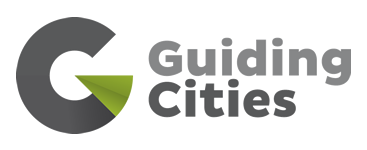Ithaca: Searching your way “One day at work”
Title
Ithaca: Searching your way “One day at work”
Affiliation(s)/ Institution
Colegio Agora
Email addresses
orientacion@colegioagora.es
Project funded by
Colegio Ágora (Madrid)
Promoter name and country
Colegio Ágora (Madrid) (España)
Type of provider
public/private
Area of implementation
- urban
- local
Context and motivation of the project - legislative background/obligations, institutional policy, institutional structures
The Agora School is an alternative school experience based on understanding education as a process of capacity building of each person, whatever they may be. The development of analytical skills and critical thinking is considered essential in our students as a way of knowing the social reality arousing concern to research and knowledge. We intend to foster an entrepreneurial and opened spirit, developing awareness and knowledge of the environment in which they operate.
Aims of the project
- Provide a space for reflection where students will acquire a strong knowledge of their interests, possibilities, capabilities, motivations and personal expectations. - Help students develop strategies and procedures to address the decision-making process enabling a critical stance on social conditions. - Develop in the pupils' interest and motivation for information. - Know the different educational options available incorporating technological tools as a means to find information. - Know the characteristics of professions, technical, personal and social aspects, approaching the world of work through an practical experience.
Target group
- students
- parents
Description of the target group
The project is developed with all students enrolled in the 3rd and 4th year of Secondary school, and the years of bachillerato at Colegio Ágora. The ages range between 14 and 20 years.
Staff (selection, evaluation, training, promotion)
- Professional personnel of the school: Secondary and counselor and course tutors involved. - External to the school: former students, parents and professionals linked to the education centre.
Methodological approach, activities implemented
The methodological approach is defined by the involvement and active participation of students. It begins with their interests and motivations favoring the emotional expression of opinions and concerns involving them in the development of each activity. It encourages personal reflection and sharing of experiences as a resource using the peer group to encourage critical thinking and awareness of self. We used a variety of methodological resources for access to all the objectives, appropriate to the age of the students to whom it is addressed: small group discussion, group dynamics, video forum, discussions with professionals and students from different professional fields , fieldwork in various work environments and analysis activities and individual and group reflection. In the tutorial sessions, it is done with 1st year Bachillerato students a questionnaire where each student explains the professional fields that are most interesting and possible future studies to what they would like to access. Around the month of November from the guidance department is brought into contact with the president of the school AMPA. Through her it is asked for help in the search for parents of college students willing to receive a 1º de Bachillerato student interested in knowing their professional reality. Throughout this day this "partner" is responsible to teach and explain in your own workplace, what his task, objectives and end sought, official and additional necessary education, peer relationships, level overall satisfaction, and everything that can arise from a workday. After the Day "A day at work" every student carries a story about the activity in which they have participated and what the experience has given to them. This story is delivered to the tutor and counselor and it is shared in the tutoring session where each one explains the site, what they have learned, etc.
Results and impact - data of program internal/ external evaluation, beneficiary satisfaction, the impact of the didactical practices at individual and institutional level
It has very much appreciated the involvement and participation of the entire educational community in this project. Parents and former students who participated recognize the importance of these activities, have felt useful and party involved in the educational process; not just for participating in the education of their children but also to collaborate and make possible a proposal for guidance as important in the overall development of students in the whole school.
Conclusions, lessons learned
RRegarding the Parents Association, it has held a meeting to evaluate the project and their collaboration in decision making session of 4th of Secondary. In both cases, the level of satisfaction of the people involved has been raised.
Directions of further development/ Transferability, replicability
There are proposed as suggestions for improvement for next year, expanding the dissemination of project One day at work to get to more parents and start searching for participants in advance.
Type of ESL (early school leaving) practice
- Prevention
Web references (url, social media presence)
http://www.colegioagora.es/servicios/departamento-de-orientacion/
Parameters on which the practice is applicable (check those appropriate)
- Measures and profiles
- Objectives and needs
Bibliography
http://static.educaweb.com/notaprensa/Premi_educaweb/2013/A2.pdf

